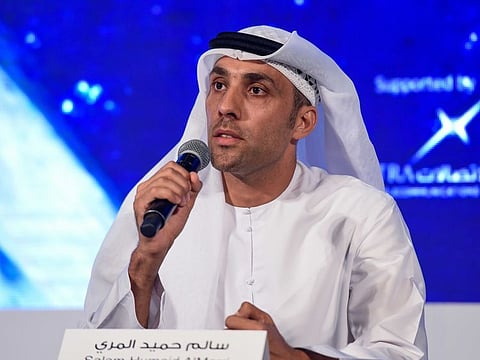Second UAE space mission could see 10 finalists
Top official gives more details about the programme

Dubai: The search for Emirati astronauts for the second UAE space mission could see 10 finalists, out of which an unspecified number will be chosen, a top official told Gulf News on Saturday.
Salem Al Marri, Assistant Director General of Dubai’s Mohammad Bin Rashid Space Centre (MBRSC) and head of the UAE Astronaut Programme, said the number of astronauts for the second mission would be revealed later.
The search for the programme’s second batch was announced on Friday by His Highness Shaikh Mohammad Bin Rashid Al Maktoum, Vice President and Prime Minister of the UAE and Ruler of Dubai, on his official Twitter account @HHShkMohd.
Applications opened on Friday on mbrsc.ae/astronauts; the deadline for registration is January 19, 2020.
It comes less than two months since Hazzaa Al Mansouri became the first Emirati in space after completing a successful eight-day mission to the International Space Station (ISS) from September 25 to October 3. The first astronaut search, launched in 2017, also saw Sultan Al Neyadi selected as back up astronaut from a total of 4,022 applicants.
‘Difficult job’
On Saturday, Al Marri told Gulf News various tests, questionnaires, essays as well as two face-to-face interviews by panels will result in the finalists. Candidates, who have to be Emiratis, above 18 years and holding a university degree, must not only demonstrate skills, but also unwavering dedication.
“They must showcase their commitment as well, because being an astronaut is a very difficult job. It requires time away from family, it requires you to be on call. It’s a different lifestyle than maybe what some people are used to. We have to make sure through the application process and also further steps afterwards that the people are ready for that kind of role,” Al Marri said.
He added that the programme will favourably consider candidates with degrees in STEM (Science, Technology, Engineering, Maths), all kinds of pilots, as well as doctors, teachers, and scientists, among others.
Main steps
He did not reveal the timeline of the process but outlined some main stages, including an automatic flagging system for unsuitable as well as promising candidates.
After candidates upload their documents (passport copy, CV, degrees, certificates, etc), they will answer some questions, writing why they want to apply and showcasing their experience.
“The application process is designed so that if there are a lot of criteria that are not met by the candidates, they would be flagged automatically for us to review them. The quicker that we can review – also those we consider as the higher candidates – those will be flagged automatically by the system so we can take a further look.”
Tests and interviews
Remaining candidates will take tests, including psychometric tests and “basic medical tests”. This would further reduce a percentage of applicants. Next comes one-on-one interviews with a panel and “detailed medical testing”, followed by “the second and final interview panel which then would possibly bring it down to around 10 people – we would select the number that we require from that”.
Al Marri said he expects a strong response for the second programme as well, adding that “anything above 1,000 candidates is a good pool to select from”.



